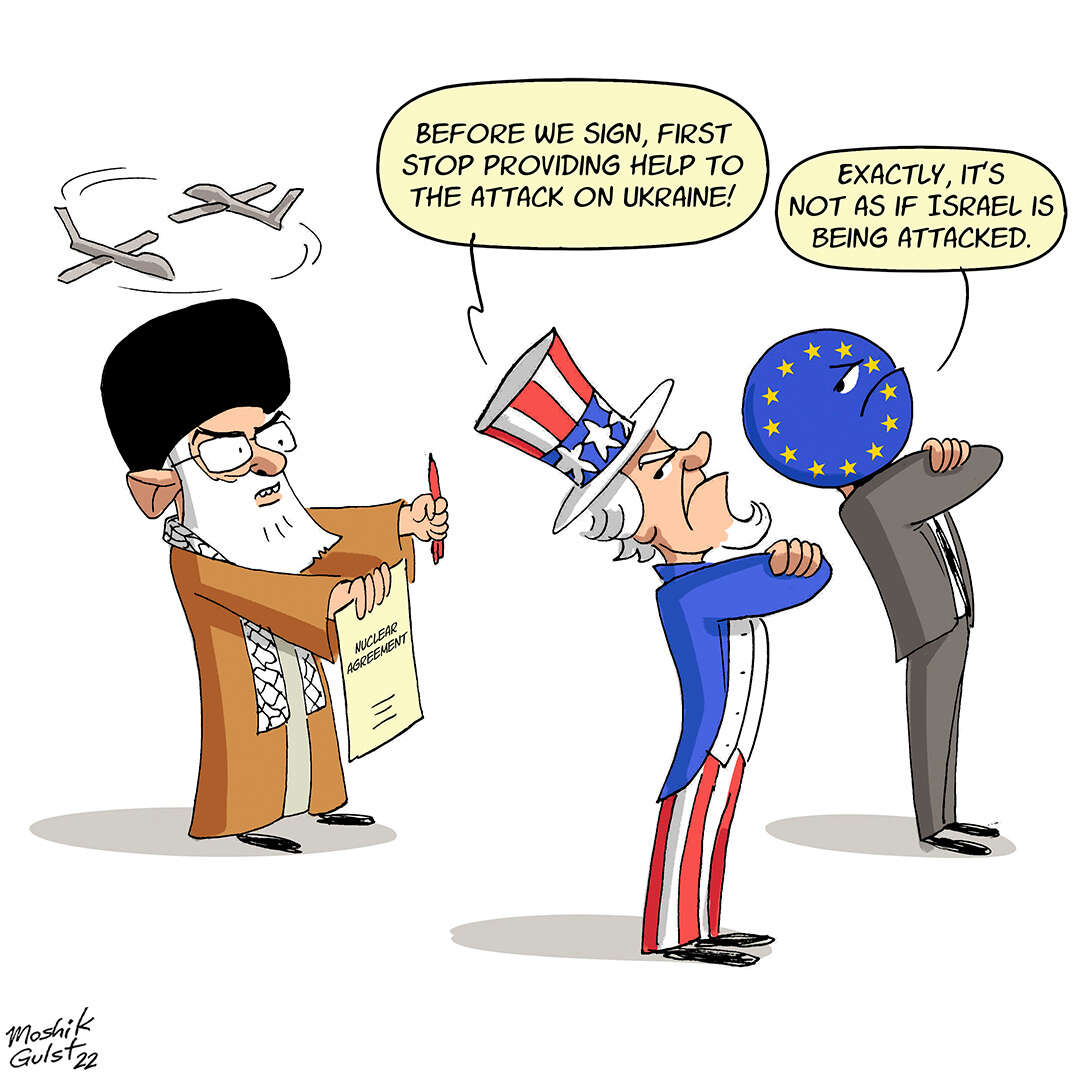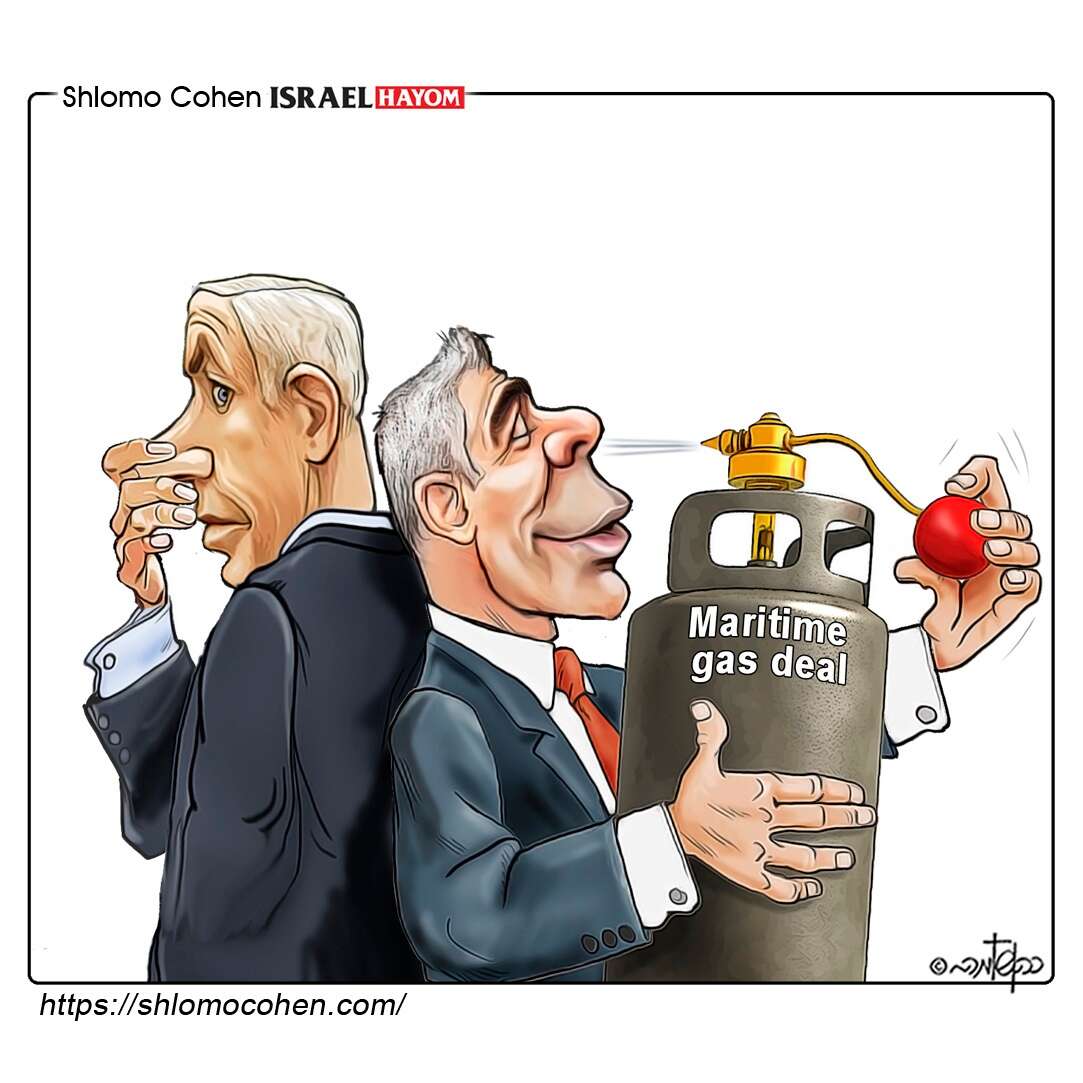The gaping holes in the UN Commission of Inquiry report
What is missing from this report as context for this difficult environment is startling. Not a word about Palestinian rejectionism for decades. Not a word on Israeli steps that completely contradict the narrative that Israel is all about permanent occupation and annexation.
Not a word about Israeli efforts to make Palestinian life better, despite Palestinian rejection and terrorism in the form of thousands of Palestinian workers making a decent living working in Israel every day. Not a word about the anti-democratic forces and corruption at work in Hamas or the Palestinian Authority, which have greatly contributed to the ills of the Palestinian people. Not a word about an educational system in the Palestinian community, which preaches and teaches hatred of Israel and Jews and the virtues of violence against the Jewish state.
Most significantly, related to the two major themes of the report — that Israel is engaged in moving toward permanent control of the West Bank and its Palestinian population and toward de facto annexation — is the complete failure to mention numerous Israeli peace offers that would have transformed Palestinians lives, including through the creation of a Palestinian state. Israel’s offer at Camp David, then later at Taba, in 2000, would have meant the withdrawal of Israeli from most of the territory and the removal of most settlements. The Palestinians said no and turned to violence and suicide bombs.
Then came Prime Minister Ariel Sharon’s unilateral withdrawal from Gaza, including from all settlements, only to have Israel met with a Hamas takeover, and years of attacks from Gaza on Israeli civilians. And then at Annapolis in 2008, Israel offered the Palestinians one more opportunity to end the conflict and move toward a state as Israel withdraws, only to be met again with no response.
In sum, there are real issues to discuss. But it’s impossible to do that in a serious and responsible way when the approach is the kind of biased one that the COI report represents. The consequence of such one-sidedness is to make the Palestinians think once again that history is on their side in their decades-old rejection of Israel’s legitimacy. This delusion has been harmful to Palestinians and is repeated here once again.
At the same time, a report like this plays into the hands of those Israelis who see the world as against them and prefer the status quo rather than creative solutions and initiatives.
The bottom line: Israel will surely reject this report for what it is: a continuing of counterproductive, anti-Israel propaganda by an arm of the UN that has a long history of bias against the Jewish state.
At the same time, the reality of the situation in the territories, even though it does not reflect either Israeli permanence or annexation, demands Israeli initiatives on the ground to improve living conditions for the Palestinians and to open up new possibilities for negotiations and solutions – even if the Palestinians have not shown they are ready for either.
American Jews must give up the illusion that they have ‘no enemies’ to the left or the right
The final straw came in 2000, when Green Party presidential candidate Ralph Nader held a massive campaign rally in Boston. From the stage, I was told, his running mate, Winona LaDuke, shrieked, “We’re going to stop the slaughter in Palestine!” This would have been bad enough, given that it erased Israel’s name from the map and, with it, the numerous Jews then being murdered by Palestinian terrorists in the name of “Palestine.”"Documentary Series Exposes 3,000 Hours of Vile Leftist Antisemitism Recorded by Swedish Spy"
But what made my blood run cold was the description of what followed: The crowd howled its approval and rose to its feet in a standing ovation. At that moment, what I saw in my mind’s eye was Hitler and the great crowd rising as one to hail him. These people, I suddenly realized, wanted to kill me.
What followed was not merely anger, but a horrific sense of betrayal. I believed in the catechisms of the left. I felt that I was one of them. But now, I suddenly realized, they did not think I was one of them. And this was because, despite everything, I did believe that the Jews have a right, at the very least, to defend themselves. I now knew that my former comrades did not believe in that right. But I did, and I would fight for it.
I will not go into the long journey that followed, which led me to Zionism, aliyah and everything that came after. Suffice it to say, I rejected the left in its entirety, and became very right-wing for a very long time.
I can no longer count myself an ideological right-winger. I believe I have learned a great deal from both the left and the right, from the likes of Orwell and Camus along with Burke and C.S. Lewis. These days, I prefer to keep my own counsel. But that sense of betrayal has never left me, and I am still angry about it.
That many Jews on the right now feel the same way is painful but also, I regret to say, not particularly surprising. All non-Jewish movements contain people who believe very ugly things about the Jews. The left has Ilhan Omar and Rashida Tlaib, the right has its “alt” contingent and now Kanye West.
But I must say, and perhaps this will comfort him, that I do not agree with Haworth’s despairing conclusion that “no one cares about us.” In fact, there are non-Jews on both the right and the left who care very deeply about the Jews, whether they be Ritchie Torres on the left or Meghan McCain on the right. Sometimes they are forced to fight a rearguard action against the haters, but they are there, they are not to be underestimated and we must work to embrace them all.
Indeed, for Jews to believe that we have “no enemies to the left” is as absurd as believing we have “no enemies to the right.” There is no single political movement—except Zionism—that is monolithically philo-Semitic. Jews, in the end, have no right or left. We have only ourselves and our friends or enemies, wherever they may be on the political spectrum. To wholly commit ourselves to one side or the other only sets us up for a rude awakening followed by a terrible disillusionment.
Zvi Yehezkeli, an Israeli television journalist and documentarian who heads the Arab desk at News 13, on Sunday night is launching “Sh’tula” (implant), a five-episode espionage docu-series on Channel 13, which reveals for the first time authentic documentation of what goes on behind the scenes of human rights organizations operating in Judea and Samaria.
The series was three years in the making. “There are 3,000 hours of footage, all of which required legal backing, and the content features many characters,” Yehezkeli told Ma’ariv. “In general, this thing is explosive, with the possibility of international lawsuits, so this process has been crazy. And it’s also the longest series I’ve ever done.”
The series “Sh’tula” follows a pro-Palestinian young Swedish woman who came to Israel as a tourist to study architecture. She met someone from the Eli settlement who explained that there’s another side to the Israeli-Arab story.
“Slowly, she is gaining ground within the human rights organizations that operate in Judea and Samaria and is actually becoming an intelligence agent,” Yehezkeli relates. “After a year, she reaches the real leadership, the Hamas people, who reveal to her the mechanism of raising money for the organizations, and the connection between the Muslim Brotherhood and the Hamas headquarters in Europe and human rights organizations. This means that human rights organizations like BDS are operated by Hamas members.”
“It became a treasure trove of intelligence, including secrets that Hamas members told her and are documented on paper,” he continues. “So, we started building a series out of it. It’s very complicated because there’s a lot of use of hidden cameras, and we also have to protect her life.”
At some point, Yehez told Army Radio on Sunday, his spy recorded a European activist who confessed on tape that she wanted to see all the Jews dead, on both sides of the “green line,” arguing that their very existence was rooted in sin. Should be fun to watch, especially if at some point you thought European activists were fair and even-handed and wanted only to help poor suffering Arabs.

































